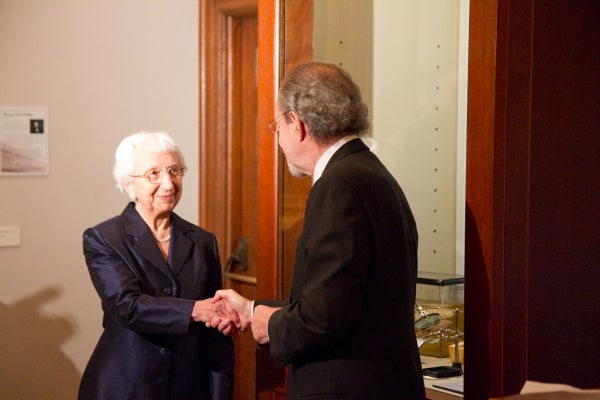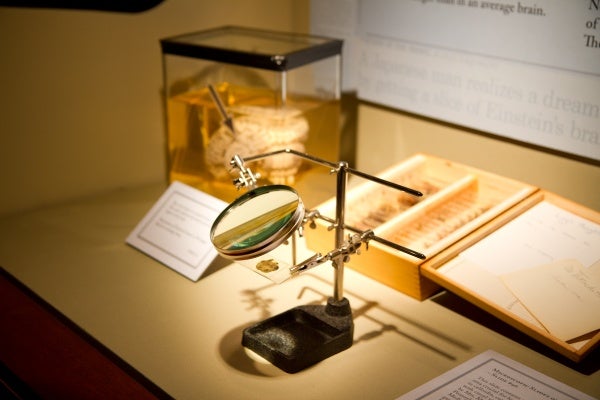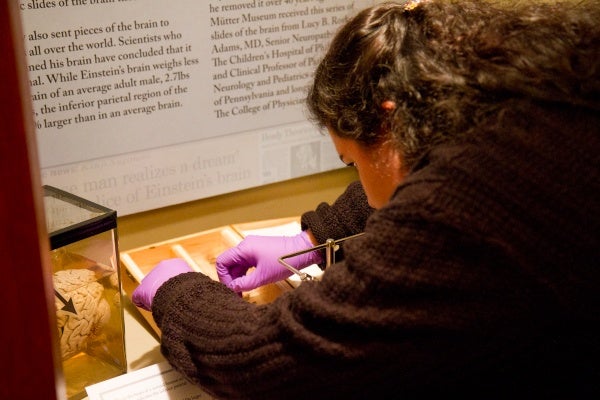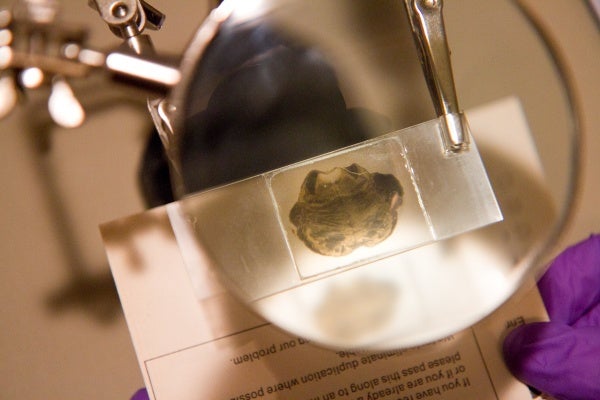A beautiful mind: Einstein’s brain samples on display at Mutter
Philadelphia’s Mutter Museum of the College of Physicians just added a bit of genius to its collection of medical oddities.
Physicist Albert Einstein’s brain is now on display–bits of his brain anyway. Forty-six small specimens are mounted on glass slides.
Where the rest of us might see blobs of brown, neuropathologist Lucy Rorke-Adams sees beauty.
“The blood vessels are beautiful, the neurons are beautiful, the integrity of the neurons is simply remarkable. It really looks like the brain of a young person,” Rorke-Adams said.
There are no signs of the plaques and tangles–or nerve cell damage–sometimes associated with aging.
Rorke-Adams was a quiet custodian of the collection for years.
She began her career at Philadelphia General Hospital; after Einstein’s death in 1955, the brain was taken to a pathology lab there. Samples from the brain were passed from the department chief then to a favored student, Allen Steinberg.
Years later, Steinberg gave the collection to Rorke-Adams.
“Dr. Steinberg appeared in my doorway with this box in his hands, and he said to me: ‘Lucy, you’re a neuropathologist. I don’t know anything about the brain. This is Einstein’s brain, and I think you should have it.’ So that’s how I got it,” she said.
The collection of brain samples sat in Rorke-Adams’ office for years without much fanfare. She’s 82 now and says it’s time to share the unique possession with the world.
The Mutter collection is one of five sets of slides prepared in Philadelphia. Museum director George Wohlreich says it’s not clear where the rest of the brain is.
“Some rich collector may have it in his basement freezer, somewhere, I don’t know. But we know that these were legitimately and appropriately obtained by one of the most distinguished neuropathologists in the world,” he said.
Wohlreich says the Mutter will make the collection available to scientists for continued study.
WHYY is your source for fact-based, in-depth journalism and information. As a nonprofit organization, we rely on financial support from readers like you. Please give today.









